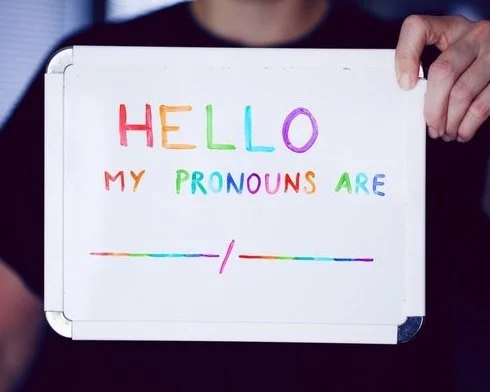Memory loss may not be the first thing that comes to mind when you think of posttraumatic stress disorder (PTSD). But if you or a loved one suffer from the condition, the impact to what and how you remember significant parts of your life, learn new things, and reason with others is a daily concern. Why is memory affected by PTSD?
Are Childhood Trauma and Eating Disorders Connected?
Is There a Connection Between Neurodivergence and Eating Disorders?
Neurodivergent people can struggle with eating disorders just like their neurotypical counterparts. But does that mean you’re more likely to develop one? Or do you just have a different relationship with food and eating? Are your irregular eating patterns different from eating disorders or are they the same thing and you just didn’t know?
How to Identify If a Child Is Questioning Their Gender
Depressed After College Graduation? You Aren’t Alone
Can Episodes of Depersonalization Be Caused by Anxiety?
Can Reparenting Yourself Help Ease Anxiety?
How to Stop PTSD Nightmares
Healing From Birth Trauma
Understanding the Lasting Effects of Birth Trauma
4 Ways to Deal With Anxiety As a POC
BIPOC carry additional risk factors compared to the average white American impacting onset of anxiety. Top that with certain stigmas that are carried as well; it can be hard to navigate and feel very lonely. Learning how to manage anxiety when it occurs is key to getting through it. Here are some ways to start.
Why do we have emotions?
Many of us were taught not to listen to our emotions or our bodies, and that we were supposed to rule them with our minds. This cut many of us off from these sources of wisdom, guidance, and protection. Women are often told we’re too emotional and that’s why we can’t be in leadership. Men are often taught that being too emotional is a weakness. But from this perspective, couldn’t we take being emotional as a compliment?
How Chronic Illness Can Cause Depression
How Chronic Illness Can Cause Anxiety
When you’re living with a chronic illness, it is natural to begin to have anxiety about the future. What will progression look like? How will symptoms evolve? Will there be a burden on your family? How will you afford to manage your health and daily activities? Worrying about any of these things can cause you to feel anxious, let alone worry about multiple factors. Treatment options exist to combat any anxiety you may have and allow you to be as mentally focused as possible to push through your chronic illness and find joy in living your life.
How to Cope With Earthquake Vicarious Trauma
If you’ve been watching the scenes coming out of Turkey and Syria you’ve probably been affected. Maybe you are even experiencing vicarious trauma. Vicarious trauma happens when you feel emotional pain, terror, fear and helplessness from exposure to others peoples’ trauma. For instance, imagining what it’s like to be stuck under rubble from the earthquake, losing your entire family or becoming homeless.
Medical Trauma: Why Women Are Particularly Vulnerable
When it comes to trauma, no single person is immune. However, women are twice as likely to experience some type of traumatic event than men. With medical trauma, that scale can be tipped even a little further. Medical trauma is considered a physiological or psychological response to some negative, likely traumatic, experience within a medical setting.
Political Trauma: Signs, Symptoms, & Treatment
When Depression & Cultural Expectations Collide
If you have never discussed depression before, you may not even know what it is. Even if you know what depression is in the broad sense, you may not fully understand what it entails and how deep it goes. Specific terms may not be a part of your vocabulary. Certain cultural norms teach you that you work hard, you reach your goals, and maybe you don’t complain when things go awry.
How EMDR Helps Depression
EMDR research started with its use for PTSD treatment. There has been evidence showing positive outcomes with other psychological issues. Depression stems from negative or overwhelming life experiences. Some of these experiences can also be traumatic. So the tie-in here can be significant. Being able to identify the cause of the depression and reprocess how a person deals with those experiences can be helpful in overcoming the negative aspects.





















